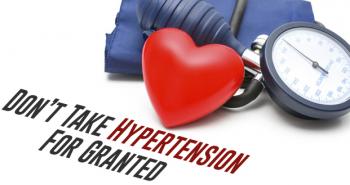DOT Medical Information Newsletter
November 1, 2018

HypertensionWhy is Blood Pressure (Hypertension) testing important for your DOT exam? Blood pressure = Systolic Pressure / Diastolic Pressure (eg 120/70) The Systolic pressure is the pressure in the arteries produced when the heart contracts (at the time of a heart beat). Diastolic pressure refers the pressure in the arteries during relaxation of the heart between heart beats. What are “the numbers” drivers need to pass for a medical certification? Answer: 140/90, but, “it depends”.
Stage 1: BP 140-159 systolic and/or 90-99 diastolic; the driver may be certified for up to one year. The driver will need to follow up with PCP to treat their hypertension and may need to start blood pressure medications. When they return in one year they will be recertified as a driver with a diagnosis of hypertension. To obtain recertification their blood pressure now must be 140/90 or lower for a one- year card. or Stage 2( 3 month card) Hypertension Stage 2: BP160-179 systolic and/or 100-109 diastolic; the driver may be certified for a 3-month card. The driver will be instructed to return before the 3- month expiration date with a letter from their PCP stating the medications and doses prescribed, along with office records showing blood pressure is now under control at 140/90 or less. CMUC will recheck the driver’s blood pressure, and if it is 140/90 or less, will issue a card good for the balance of one year. Stage 3 Hypertension (Note Drivers are disqualified if : 180 systolic and/or 110 diastolic or greater) When following up with a prior diagnosis of hypertension for a new medical card
Note: CMUC will not charge for a full DOT physical at this 3 -month visit, rather there will be a 25$ administrative fee to review records, check BP and generate the new card. Also note, drivers with a diagnosis of high blood pressure, and with a disqualifying blood pressure at their annual exam of BP 180 or greater systolic, and/or 110 or greater diastolic will qualify for a maximum of 6 months once blood pressure is controlled to 140/90 or less. They are no longer eligible for one year cards and will need a full DOT physical every 6 months. HIGH BLOOD PRESSURE TREATMENT Untreated hypertension can lead to a variety of complications, including heart disease and stroke. The risk of these complications increases as blood pressure rises above 110/75,which is still in the healthy range. Treating high blood pressure can reduce the risk of heart attack, stroke, and death. ●Reduce the amount of salt in the diet |